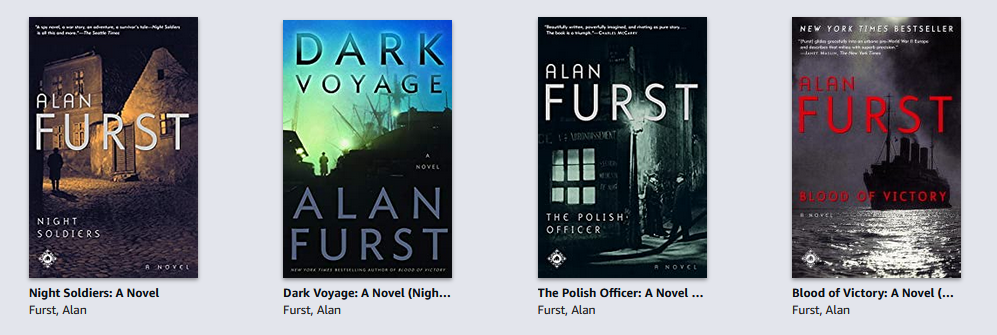
As I watch the images of recent weeks — war, devastation, trains and platforms packed with fleeing civilians — I find myself reminded of the works of Alan Furst. I’ve been meaning to write more about my favourite authors, so this is a good place to start.
Furst’s novels are set in the 1930s and the 1940s, amidst the shadows of Europe: they deal with espionage, occupation, and resistance. The books are episodic; short on plot; and long on atmosphere. At their best, their writing is beautiful and evocative; consider the opening scene of Dark Voyage, in which a radio operator hears the final call of a distressed merchant ship, or Warsaw’s defenders in the opening scene of The Polish Officer. Eventually, Furst went downhill; his later books crept towards self-parody, to the point where I never picked up his latest.
His earlier books have lost none of their power:
- The first in the series, Night Soldiers, is probably my favourite — certainly the most sweeping (and sprawling). It follows one man’s story across the years, from the terror and paranoia of Stalin’s Soviet Union in the 1930s, through the Spanish Civil War, and eventually, World War 2 itself.
- I also really like the more focused Dark Voyage, about a single merchant crew recruited into the Allied cause.
And there are gems throughout the series: an Italian journalist ghost-writing the memoirs of an anti-Mussolini colonel; a one-time film producer helping a RAF pilot unload arms for the French Resistance; the titular Polish officer leading a trainload of people to safety.
The books are almost all standalone, so my recommendation would be to start with Night Soldiers and see where you go from there. If you like it, you probably can’t go wrong with books from the first half of the series.
Enjoying the site? Subscribe via email below.